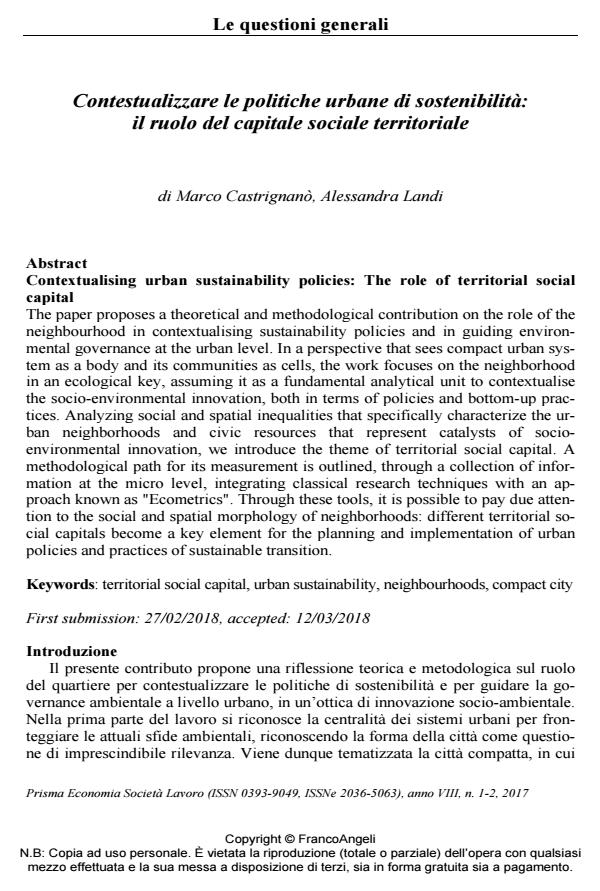Contextualising urban sustainability policies: The role of territorial social capital
Journal title PRISMA Economia - Società - Lavoro
Author/s Marco Castrignanò, Alessandra Landi
Publishing Year 2018 Issue 2017/1-2
Language Italian Pages 13 P. 26-38 File size 179 KB
DOI 10.3280/PRI2017-001003
DOI is like a bar code for intellectual property: to have more infomation
click here
Below, you can see the article first page
If you want to buy this article in PDF format, you can do it, following the instructions to buy download credits

FrancoAngeli is member of Publishers International Linking Association, Inc (PILA), a not-for-profit association which run the CrossRef service enabling links to and from online scholarly content.
The paper proposes a theoretical and methodological contribution on the role of the neighbourhood in contextualising sustainability policies and in guiding environ-mental governance at the urban level. In a perspective that sees compact urban system as a body and its communities as cells, the work focuses on the neighborhood in an ecological key, assuming it as a fundamental analytical unit to contextualise the socio-environmental innovation, both in terms of policies and bottom-up practices. Analyzing social and spatial inequalities that specifically characterize the urban neighborhoods and civic resources that represent catalysts of socio-environmental innovation, we introduce the theme of territorial social capital. A methodological path for its measurement is outlined, through a collection of information at the micro level, integrating classical research techniques with an approach known as "Ecometrics". Through these tools, it is possible to pay due attention to the social and spatial morphology of neighborhoods: different territorial social capitals become a key element for the planning and implementation of urban policies and practices of sustainable transition.
Keywords: Territorial social capital, urban sustainability, neighbourhoods, compact city
Marco Castrignanò, Alessandra Landi, Contestualizzare le politiche urbane di sostenibilità: il ruolo del capitale sociale territoriale in "PRISMA Economia - Società - Lavoro" 1-2/2017, pp 26-38, DOI: 10.3280/PRI2017-001003